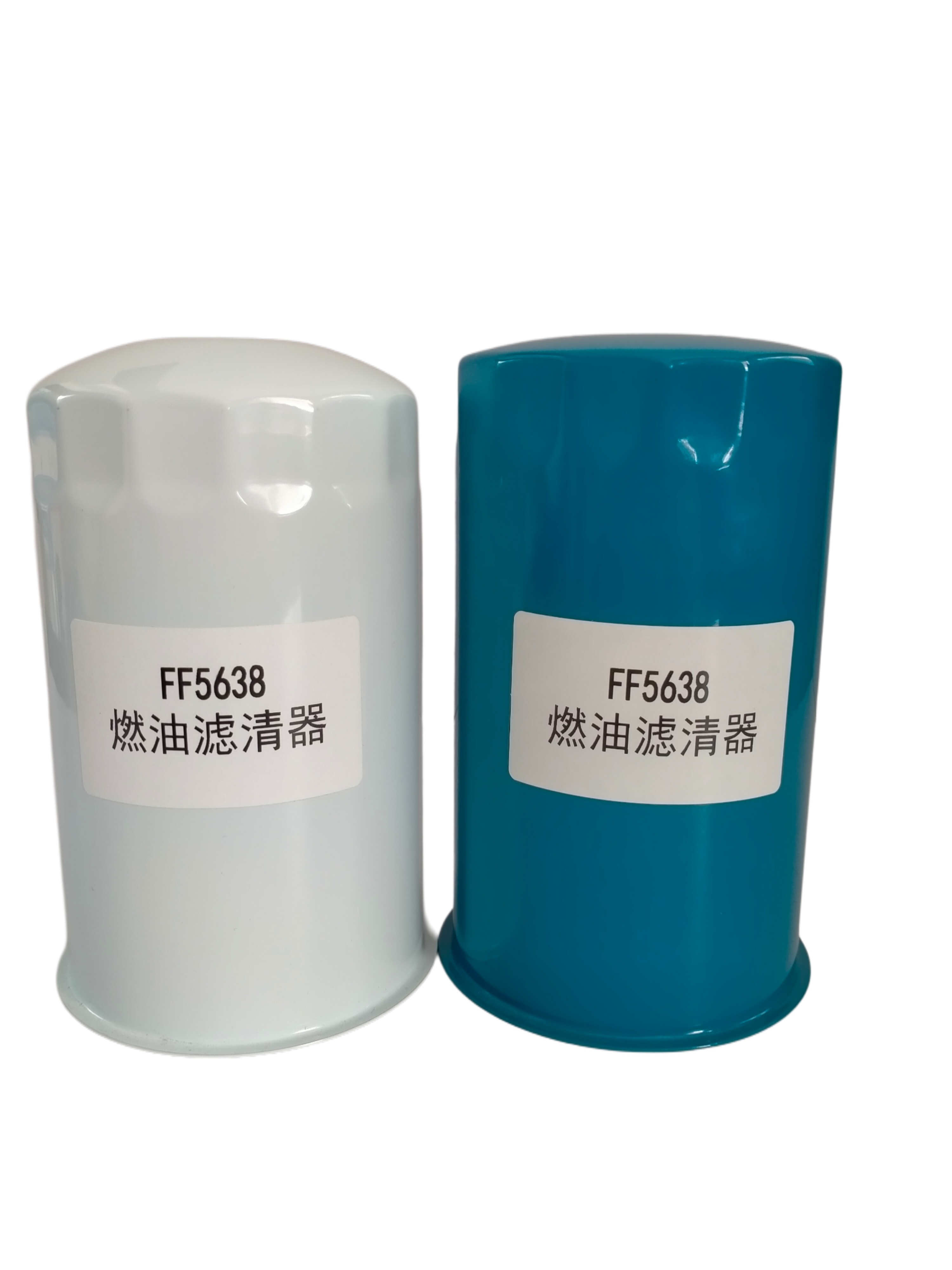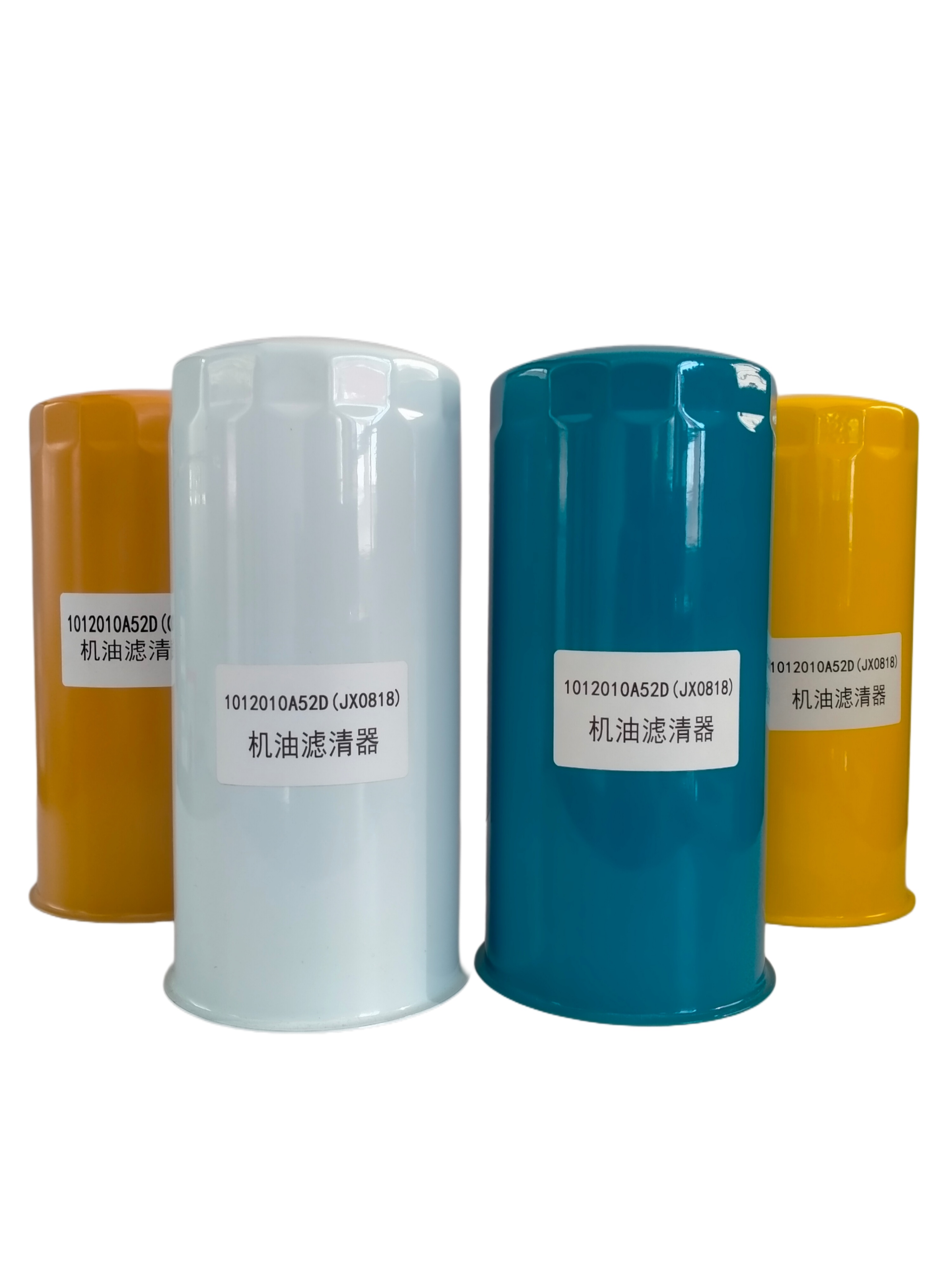What are the different types of oil filters?
2025-07-08
In routine car maintenance, the oil filter is an indispensable and important component. It filters impurities and metal debris from the oil, ensuring the engine's internal cleanliness and extending its lifespan. With advancements in automotive technology, oil filters have undergone numerous iterations and upgrades, resulting in various types to meet the needs of different vehicle models and usage environments. This article will detail the main classifications of oil filters, helping car owners better understand and choose suitable oil filters.
I. Classification by Installation Method
Oil filters can be primarily classified by their installation method, mainly into screw-on and clip-on types.
1. Screw-on Oil Filter
The screw-on oil filter is the most common type. It connects to the oil filter housing via threads; installation and removal only require rotation. This filter is simple in design, has good sealing, is easy to replace, and is widely used in various passenger cars and light commercial vehicles. Screw-on oil filters typically use a paper filter element, effectively intercepting tiny particles in the oil to keep it clean.
2. Clip-on Oil Filter
Clip-on oil filters are more common in older vehicle models or specific brands. They are secured to the engine using clips or bolts. Compared to screw-on filters, replacing clip-on filters is slightly more complex and requires additional tools and time. However, in engine compartments with special designs or limited space, clip-on filters may be more suitable.
II. Classification by Filtration Efficiency
According to filtration efficiency, oil filters can be further divided into full-flow filters and bypass filters.
1. Full-flow Oil Filter
A full-flow oil filter is a device where all circulating oil passes through the filter for filtration. This filter has high filtration efficiency, maximizing the removal of impurities from the oil and protecting the engine from wear. Modern cars generally use full-flow oil filters to ensure the engine's long-term stable operation.
2. Bypass Oil Filter
A bypass oil filter only filters a portion of the circulating oil; the remaining oil flows directly back to the oil pan. This design is more common in older models or specific applications, such as racing cars, to reduce the filter's resistance to oil flow and improve engine power response. However, bypass filters require shorter maintenance cycles and need regular inspection and filter replacement.
III. Classification by Material and Structure
Oil filters can also be classified according to their material and structure, mainly including metal shell paper filter element filters, plastic shell paper filter element filters, and magnetic filters.
1. Metal Shell Paper Filter Element Filter
The metal shell paper filter element filter is the most classic and commonly used type. The shell is made of metal, and the inside is a paper filter element. This filter has high strength, is heat-resistant, and has good filtration performance, making it the first choice for most household vehicles.
2. Plastic Shell Paper Filter Element Filter
To reduce weight and cost, some vehicle models have started using plastic shell oil filters. Although the shell material has changed, the filter element remains paper, ensuring good filtration performance. Plastic shell filters are easier to process and shape, suitable for complex spatial layouts.
3. Magnetic Filter
A magnetic filter is a relatively new type of filter that uses magnets to adsorb ferromagnetic impurities in the oil, such as iron filings and wear particles. Although it cannot completely replace the filtration function of traditional paper filter elements, the magnetic filter can serve as an auxiliary means to extend the service life of traditional filters and improve oil cleanliness.
IV. Summary
In summary, oil filters can be classified into various types based on installation method, filtration efficiency, and material structure. When choosing an oil filter, car owners should consider the vehicle model, usage environment, and personal needs to select the most suitable filter type. Regularly checking and replacing the oil filter is crucial for maintaining engine health and extending the vehicle's lifespan. Through scientific and reasonable maintenance, keep your car in optimal condition to ensure safe and smooth journeys.
RELATED INFORMATION
How can the life of an oil filter be extended?
2025-07-06




